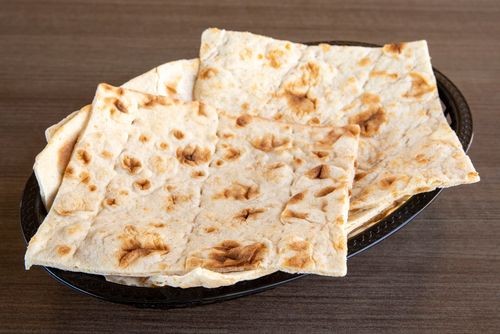What is Iran's plan to confront the global bread crisis?
Ahmad Abdul-Rahman explains what the Iranian government is doing to help the country manage the shortage of wheat and grain.
To overcome the current wheat crisis, and prevent a large amount of food being wasted, Iran, which is subject to Western sanctions, has changed the way in which its currency is allocated to producers and consumers.
The government also intends to offer electronic vouchers in the next two months for specific quantities of bread at a subsidised price, while the rest will be offered at the market price.
These measures have been deemed necessary because wheat prices have reached their highest level since 2008 due to growing concerns about a shortage of this strategic crop, according to international reports. The main reason for the concerns about the price of wheat is the Russian-Ukrainian war, which has reduced exports by more than 25 per cent.
The last time wheat prices rose sharply was in 2007 and 2008, following a sharp drop in production in leading producing countries such as Australia and Russia. This resulted in a food supply crisis in many countries, including uprisings in the Middle Eastern countries. This was known as the Arab Spring.
Countries such as Egypt, Tunisia, Libya and Lebanon, as well as countries in North Africa (MENA), suffer from a worldwide wheat shortage. In Europe, most countries are facing the same problem, creating food shortages. Even Londoners were queuing for free food a few days ago.
The Islamic Republic of Iran, like other countries, has also been embroiled in the global wheat shortage crisis. The problem occurred during the month of Ramadan, which began in early April. The Iranian authorities tried to avoid any shortage of this basic commodity at this time, but the problem surfaced once the holy month ended.
Protests that erupted in Iran threaten a revolution. The official Iranian news agency confirmed that protests erupted as a result of the high prices of bread. Some stores were burnt, which prompted the police to arrest dozens of so-called instigators.
The protests began after the government cut subsidies on imported wheat, which led to a 300 per cent increase in prices for a range of flour-based food commodities. The official inflation rate in Iran is about 40 per cent. More than half of Iran's 82 million people live below the poverty line.
The issue that caused Iran to be affected by this global crisis was the preference for importing wheat, rather than buying it from local farmers at a reasonable price and supporting continued self-sufficiency. Instead of providing subsidies to local farmers, the country has relied on imports and the pockets of foreign producers were lined.
The ramifications of the Russia-Ukraine war
Russia and Ukraine are considered to be the breadbaskets of the world, and both countries have been major exporters of grains such as wheat, corn and barley. In 2020, they each exported about half of their wheat to the MENA countries, But the Ukrainian war disrupted supplies of grain and other goods the region needed, such as oil seeds and cooking oil. About a quarter of all Russian and Ukrainian wheat exports were cut off and half of the two countries' corn exports for 2021 and 2022.
Many essential Ukrainian infrastructure used for commerce, including ports and railways, were destroyed or damaged in the war. Ukraine has also banned the export of some grains to protect its strategic stockpile.
Moreover, even if the war ends soon, the possibility of another outbreak of conflict between the two warring parties is likely to prevent the resumption of agricultural cultivation. According to estimates by the Food and Agriculture Organization of the United Nations (FAO), about 30 per cent of Ukraine's arable land has not been cultivated or harvested due to the war.
It should be noted that many analysts warned against imposing sanctions on Russia, because these sanctions may lead to high inflation and economic depression in the US and other European countries. This has now happened. The US, which does not rely heavily on Russia for food and energy, was also warned that it could be severely affected by rising inflation and the subsequent recession. Sanctions, especially when they become more stringent, are expected to lead to higher prices in various areas, such as energy and food products.
Analysts believe that the shortage of wheat reserves, which are low everywhere, will not be resolved soon. But it is possible that countries with funds will be able to weather this crisis.


Comments